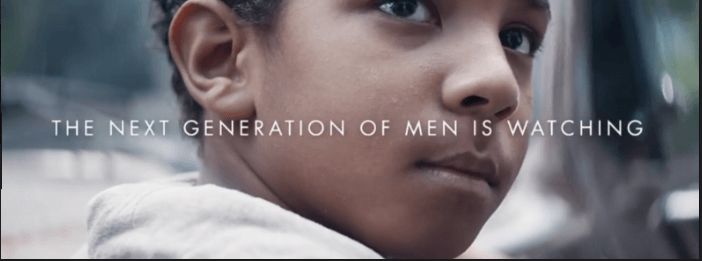Gatekeepers set the standards for masculinity
6 min read
medium.com
ETHAN RATLIFF
Staff Writers
“Well you’re not a real Star Wars fan,” and, “You don’t understand, you’re too young.” We have often heard comments like this throughout our lives. While we tend to accept these comments, and forget them not long after, they have a lasting impact on not only those involved, but society’s perception at large. This is known as gatekeeping.
As a man, I’ve been subject to gatekeeping my entire life- all men have. It happens anytime someone says, “A real man would…”
Gatekeeping is defined by the r/Gatekeeping Reddit thread as an instance “when someone takes it upon themselves to decide who does or does not have access or rights to a community or identity.,” The idea was first asserted by social psychologist Kurt Zadeck Lewin in support of his mass communication theory. The theory is not the same as the communication theory described by Kurt Zadek Lewin. While the modern definition varies from Lewin’s original, the model he described can be used to understand just how gatekeeping works, and the problems that gatekeeping causes.
According to Professor Ghulam Shabir’s study, “Process of Gatekeeping in Media: From Old Trend to New” Lewin first used the term “gatekeeping” to describe a wife or mother as the person who decides which foods end up on the family’s dinner table. “Lewin recognized that for food to go from a store or a garden to the dining table, there were multiple decision-making processes it had to pass on the way there in a time when men were thought to control all household decisions. Lewin found that food does not move by its own force. Entering or not entering a channel, and moving from one section of a channel to another, are affected by a ‘gatekeeper’.”
Essentially, a gatekeeper decides which commodity – whether it be materials, information or dinner – will move forward and which will not. This concept may be applied to all aspects of the social system, the political system and the workforce. There are communication gatekeepers, who serve as intermediaries between a group and the focus of their attention, like publicists and aides for celebrities, magazines and other companies. They are there to welcome and accept input from the community. However, it is social gatekeepers that hurt their community.
Industries and organizations often are considered gatekeepers. To push their products onto consumers, or gain public support, they will manipulate the delivery of their products. A recent and controversial example that has brought the nature of masculinity into the limelight is Gillette’s “The best a man can get” advertisement.
The ad tries to call attention to the toxicity that has grown in masculinity such as physical and emotional bullying, implementing dominance and enforcing sexuality, all awful things that are a relief to see addressed.
In response to the Gillette ad, hundreds of negative comments spread across Twitter, including cries about “Leftist propaganda” and #MGTOW. However, many responses from men were similar to what one Twitter user wrote, “Gillette doesn’t represent the majority of good men like myself.”
Those offended by the advertisement are missing one good point Gillette makes: accountability. It doesn’t matter if you don’t actively participate in toxic masculinity, not recognizing and fighting against it achieves nothing. We need to pay attention to what other men say and do, and reject gatekeeping.
Personally, I don’t like the advertisement. I appreciate what it attempts, but even if Gillette is pushing for more emotionally intact men and claiming that, “things have changed,” they still neglect to address that the definition of manliness varies amongst every person. While they do shift the narrative away from “the real man,” the company defines and pushes its vision of “the best man.” They are creating new gatekeepers, and that’s not good enough.
“Personally, it’s never been a direct thing [for me] but I’ve seen it in sports a bit. A player will go down hurt and get shamed for not acting tough,” said Harry Masters, a junior math major.
Consider Colin Kaepernick and the NFL. Kaepernick did the one thing no “real man” should do and took a stand for something he cares about. Football players have traditionally served as symbols of manliness on and off the field, but supporting people who aren’t being treated equally isn’t manly, and something as unpatriotic as taking a knee is certainly not manly, either. Kaepernick’s actions were praised by many. He was named “Citizen of the Year” by GQ magazine, but the NFL quickly blackballed him. Fox News’ Todd Sarnes was quick to name him the “Coward of the Year” and GQ the “magazine for emasculated men”. The industries that are built by powerful men refuse to allow for a man that didn’t meet their standards to receive acknowledgement.
Those unwritten standards are idolized by society, or at least tolerated. The ladies’ man. The breadwinner. The troublemaker. Just as anyone else does, men have standards to meet, but it seems those standards are often a stretch from who men really want to be.
“The notion that my masculinity should be defined by the number of women I sleep with during the semester has always baffled me. That bringing a random girl home from the bar is what I ‘should be doing’,” said senior political science major Alex Sakes.
Why do gatekeepers set standards then? Because gatekeepers never want you to be a real man. People use the phrase, “a real man would…” not to educate, but to manipulate boys who don’t know any better to act accordingly with their view of a man, and sadly the perception of men seems to have more negative connotations than positive. It’s a cheap, “I’m better than you so listen to me” that disguises itself by creating a false checkpoint or goal. Worst of all, it turns the idea of masculinity and brotherhood into a competition, destroying the ability for men to recognize and fix the toxicity that spreads within manhood.
Men are taught that they must never appear weak and lose their ability to understand themself and connect with other men. Crying, talking about emotions or admitting insecurities are all signs of weaknesses that men are taught, “a real man wouldn’t show.”
According to a study in the Journal of Psychology of Men & Masculinity by YJ Wong titled Men’s Restrictive Emotionality, while men studied had a negative reaction to the idea of sharing emotions, there was no significant reaction to repressing emotions. Many studied didn’t realize that they were repressing their emotions. This ends the chances of ever fixing problems, because if you can’t feel, how can you tell that something is wrong?
The only way to stop the gatekeeping is to make sure that we don’t in turn become gatekeepers.
First, society at large must recognize what masculinity has become- a self destructive cycle of shaming. We then must flip the script and change this competition into a group effort to better men overall, switch real men and best men into good men. I asked several students how they would use the “A good man…” statement that has been weaponized for years. Nicolas Vinson, a senior communication and digital studies major responded, “A good man wants to leave a situation better than he found it.”
I’m not arguing masculinity is all bad, there has to be good if it’s worth fixing, but we can’t accept the standards that industries and men in positions of power continue to implement on consumers and audiences, it just continues the problem. We will never fit their image of “real men” or “best men”, but they can’t stop us from being good men.











